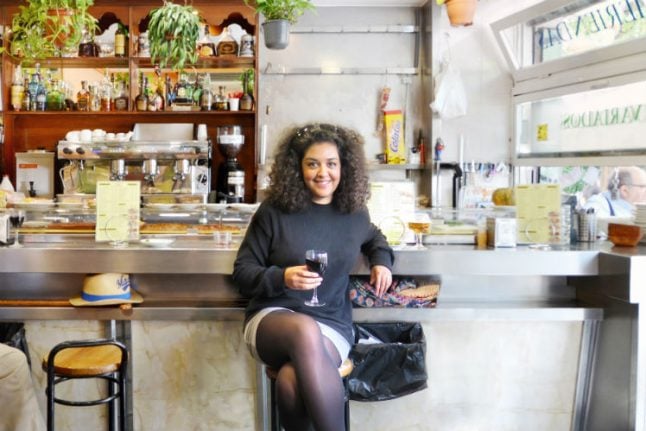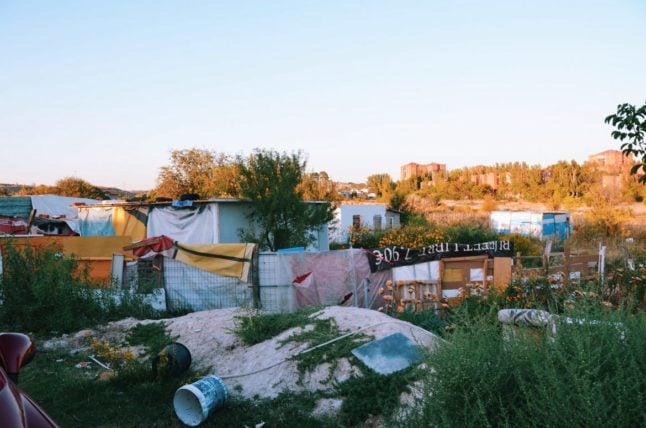The Local sits down and talks to Leah, a regular contributer to The Local, about her new crowd-funding project, which she hopes will launch Madrid No Frills from a growing blog to a fully-fledged, online publication.
Leah is known by her friends and followers for going against the grain, which she admits doesn’t always make sense to others. The best example of this is her blog. While most Madrid bloggers promote the coolest new restaurant to hit the foodie scene, Leah focusses on the unfairly neglected side of Madrid, telling stories that can regularly get a ‘love’, ‘crying’ or ‘angry reaction’ on Facebook.
“Cherish what you’ve got before it’s gone”, says Leah, echoing the concept of her blog, which her personality clearly underpins. “It’s about looking into the future and imagining the world that you want. If you like how it looks, then do your best to make that happen. Realise the power you have to influence this and encourage others to act too: whether it’s buying a caña in your struggling neighbourhood bar or having a conversation about freedom of expression. These are all valuable paths to a future we want”.

Many of the stories covered by Madrid No Frills have had a lasting impact on their subjects. Photos: MNF
Leah’s work regularly has a visible impact on Madrid. When she publishes an article about a bar or restaurant, a hundred more people may suddenly turn up that week. That rush of customers might be enough for the owner to pay the bills for another month, and the customers who keep going back will likely sustain them for potentially even years to come.
It’s not just struggling bars that are grateful for Leah’s work. She tells us that she often receives messages from her followers thanking her for fighting their corner, and for showing others how easy it is to fight for what you believe in. And it’s this reaction that Leah clearly thrives on.
“I know it’s working – I can see it – but I’m still seeing places close down and people being evicted every month. The Madrid that I fell in love with six years ago has never been more vulnerable.” This is why Leah has decided to up her game, as she says. “Madrid needs me and my audience!” Leah dreams of being able to spend more time on Madrid No Frills so that she can investigate more stories, share more of her work and reach more people.
When it comes to earning a living, here’s another example of Leah going against the grain: she refuses to monetise her blog. In fact, she tells us that she has never even received a freebie.
“It’s fine if people want to make money through their blog, but it’s not for me. For three years, I’ve written and shared what I want, and I don’t want that to change. I want to stay completely independent and be free to tell unfiltered stories, just as I always have. I want only the people who love what I do to support me.”
“I’d feel so stressed if I’d written an article about a sensitive topic, thinking, will my sponsor be ok with everything I’ve said in this? Because I often say things that are a little controversial.”
It’s for this reason that Leah has decided to launch a community-based crowd-funding project on Patreon, where she knows that only those who truly believe in what she’s doing are the ones supporting her. In return, Leah has created three very cool rewards for her Patrons: access to behind-the-scenes content, a secret series of travel articles, and a map of all locations she’s ever discovered in Madrid (think 138 no-frills bars, 63 restaurants, 42 real Madrid gems and 15 abandoned buildings).

These rewards may be a highly sought-after thank you gift to anyone who donates to her, but the real rewards are there for everyone to enjoy: “more stories, more hidden gems and more support for Madrid’s little guys – the ones me and my audience are turning up the volume for!”
It’s been just a few days since Leah launched her Patreon page. When we ask her how it’s gone so far, she puts both hands on her heart. “I’ve cried in awe of every single one of the people who have given me their hard-earned money. And already, I’ve received enough donations to be able to spend an extra two days per month on Madrid No Frills! In addition to weekends and evenings, I’ve gone from writing four articles per month to being able to write six, plus many more little extras on Facebook, Twitter and Instagram. This means everything to me and to Madrid’s underdogs – the ones I now have two extra days per month to share stories about!”
As a freelancer, Leah is able to shift her work around, and her dream is to be able to spend a few days per week working on Madrid No Frills. “Imagine if one new article per week became ten and saving dozens of local gems became hundreds! Imagine if I could share more hard-hitting stories from victims of gentrification, racism, homophobia and exploitation. I can do this, but not without the help of my audience.”
After going viral in January, Leah’s blog has captured the hearts of an entire nation, and many of us are watching, excited to see what her next moves are. Speaking of which, we ask her if she has anymore plans to grow Madrid No Frills.
“Yes!” Leah says excitedly. “But I’m saving that behind-the-scenes information for my Patrons to discuss with me over a caña.”
The team at The Local wish Leah the best of luck with Madrid No Frills. If you’d like to follow, and indeed support her work, visit her Patreon page and enjoy one of her very exciting rewards (the Map is our favourite).
READ MORE: IN PICS: How one British woman revived Spain's love for its own no frill bars













 Please whitelist us to continue reading.
Please whitelist us to continue reading.
Member comments